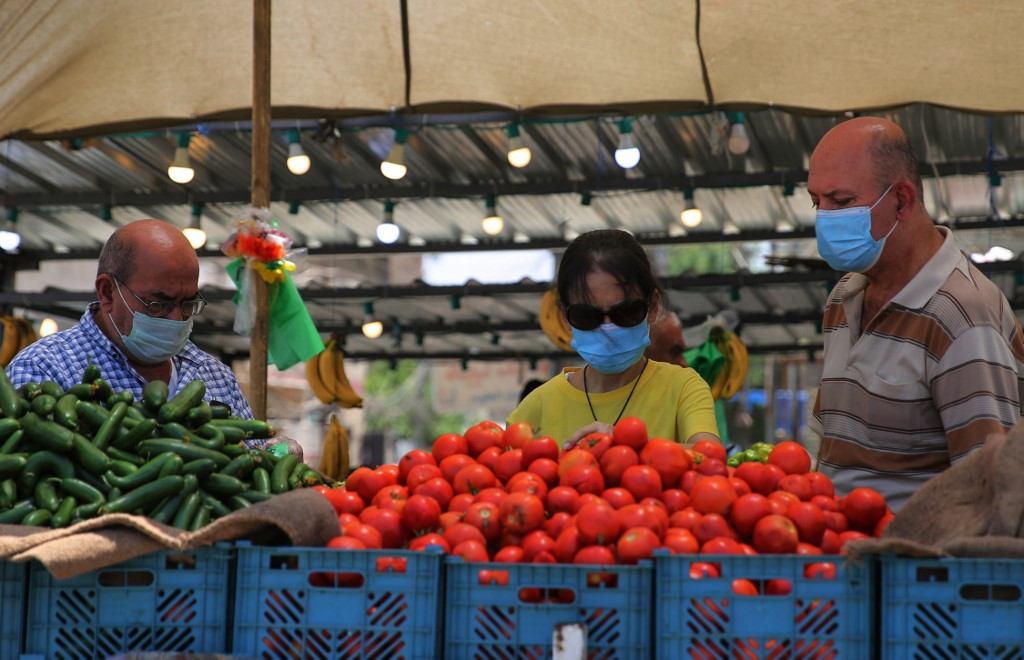Popular Reads
Top Results
Can't find what you're looking for?
View all search resultsPopular Reads
Top Results
Can't find what you're looking for?
View all search resultsFood commodities still at risk of coronavirus 'market shock': FAO/OECD
Change text size
Gift Premium Articles
to Anyone
 Iraqis wearing a protective mask amid the COVID-19 pandemic, buy fresh produce from a street seller at a market in Karrada, in the capital Baghdad, on July 14, 2020.A knock to food consumption in a global recession triggered by a coronavirus epidemic could produce a "market shock" of tumbling agricultural prices, the UN's food agency and the OECD said on Thursday. (AFP/AHMAD AL-RUBAYE )
Iraqis wearing a protective mask amid the COVID-19 pandemic, buy fresh produce from a street seller at a market in Karrada, in the capital Baghdad, on July 14, 2020.A knock to food consumption in a global recession triggered by a coronavirus epidemic could produce a "market shock" of tumbling agricultural prices, the UN's food agency and the OECD said on Thursday. (AFP/AHMAD AL-RUBAYE )
A
knock to food consumption in a global recession triggered by a coronavirus epidemic could produce a "market shock" of tumbling agricultural prices, the UN's food agency and the OECD said on Thursday.
With food production mostly maintained during the crisis, agricultural markets were facing the risk of swelling stockpiles that would weigh on prices, the organizations said.
"The macroeconomic shocks induced by the COVID-19 pandemic are expected to put downward pressure on agricultural commodity prices," they said, adding there was potential for "a historically significant market shock" this year.
The impact on vegetable oil and animal-based products would be greater than for staple crops like rice and wheat, they said.
The projections were part of an annual 10-year agricultural outlook published by the U.N.'s Food and Agriculture Organization (FAO) and the Organization for Economic Cooperation and Development (OECD). It marked their first analysis of the possible consequences of the new coronavirus on agricultural markets. The virus, which causes the COVID-19 disease, has already contributed to price slides in agricultural commodities, including a 10-year low for US corn, as restaurants have closed and fuel consumption has fallen.
Some commodity prices have recovered in recent weeks, helped by an easing of lockdowns, but the FAO and OECD said the short-term outlook remained uncertain.
"The markets have done a good job of getting over the initial shock," OECD Secretary General Angel Gurria told an online news conference.
"However, there is no room for complacency, especially as the virus spreads in developing countries."
While the COVID-19 context has clouded the short-term outlook, the FAO and OECD projected that agricultural prices would gradually revert to their baseline scenario of a slight decline in real terms over 2020-2029.
Higher productivity, led by yield gains, would keep pace with population-driven food demand and curb global prices, they said.
Prices of meat, particularly pork, were projected to fall more sharply as the market recovers from a swine fever epidemic in China.









